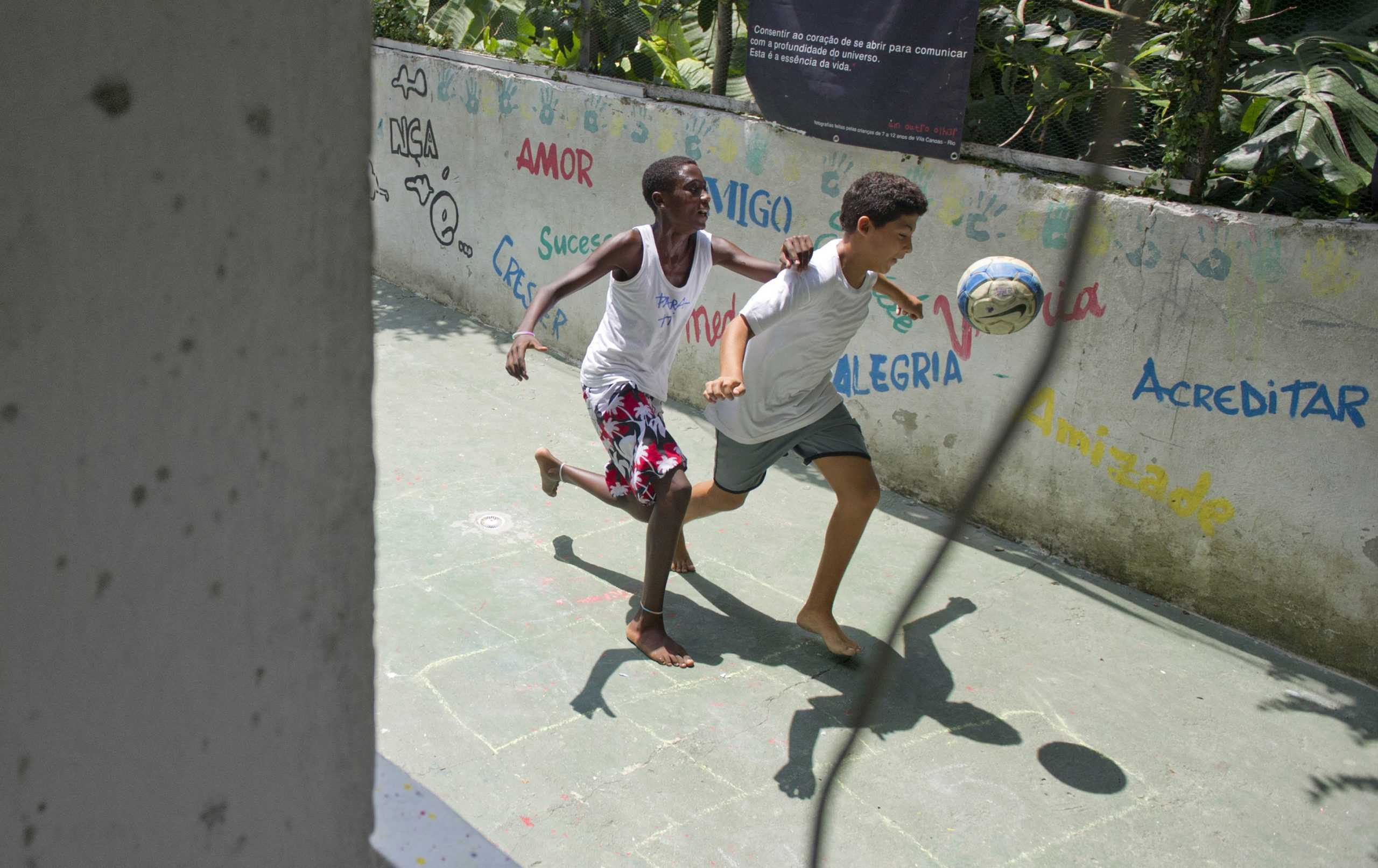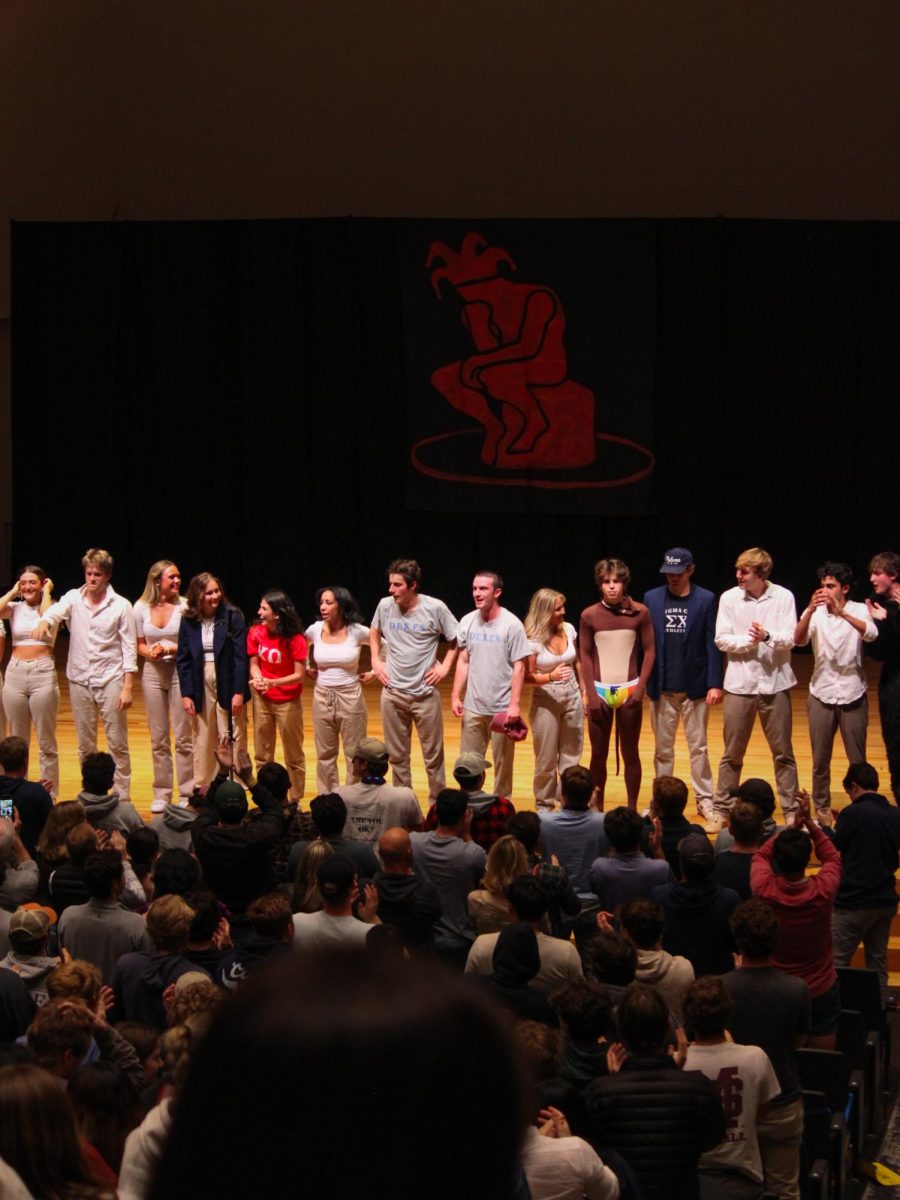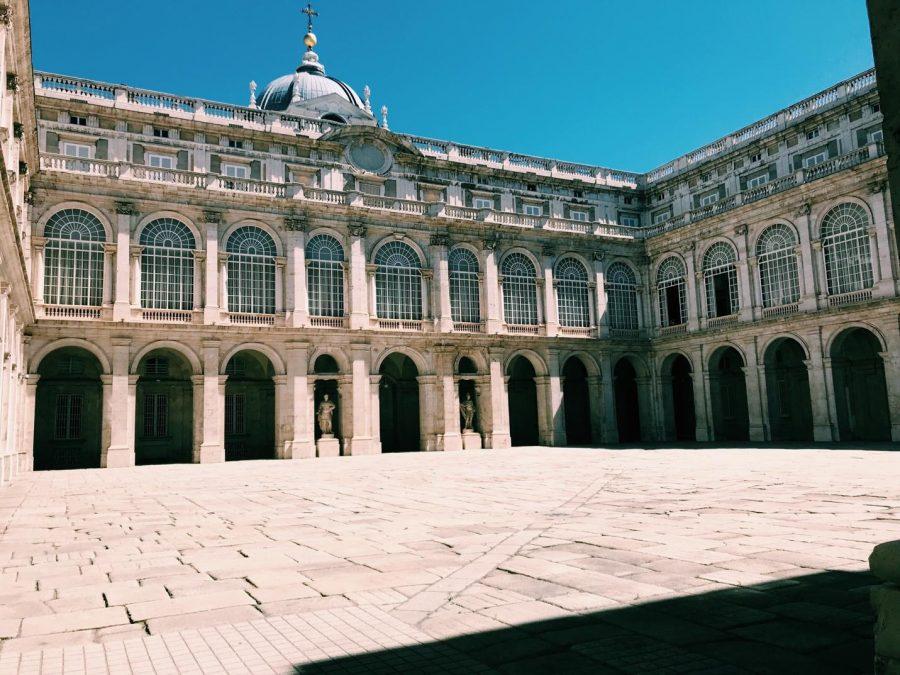Each morning for about 15 minutes, we walked a mile from our small hostel to reach Helping Hands, a school for 5 and 6 year olds located in the center of Cuzco, Peru.
We walked across train tracks, up a steep hill and on a deserted dirt road through a small, impoverished village. The area was barren. Stray dogs ran along the road, and we kicked up more and more dust with each step. The road was lined with small locally run stores, or bodegas, with the same products: bottles of Coca-Cola, local chocolate candies (some spicy and some sweet) and quinoa nutrition bars.
The blatant disparity between the culture that I was suddenly thrown into and the U.S. culture was brutally obvious.
As we walked, shoeless kids with dusty faces poked their heads out of their front doors to see us walk through their neighborhood.
They looked intrigued, as we were clearly out of place. My friend, Rosey, and I headed to Helping Hands for another day of volunteering.
Rosey and I taught English at Helping Hands for about a week. The students were shy at first, since we were strangers in their classroom.
However, as the week progressed, the kids became more comfortable and their enthusiasm to learn flourished. Each day, we went through the alphabet, slowly translating each letter from Spanish to English and rewarding each student with stickers that read “¡Excelente!”
After our lesson we acted as assistant teachers to the main teacher, or “profe” as the students addressed her. In addition to giving words of encouragement, Rosey and I helped the students with their schoolwork in the broken Spanish that we knew.
Afterwards, one by one, the kids went outside and thoroughly washed their hands so they could have the snack that the school provided for them.
While they played on the chipped slide and outdated monkey-bars, Rosey and I sat on the small bench watching them and taking in the scenery around us. The lack of vegetation was surprising.
The village was dry and dusty; it could undeniably use a few heavy rainfalls. Stray dogs infested the small town, and we began to count how many we saw as we walked from our hostel to the school each day. Mothers and young children sat outside their homes weaving vibrant colors to make shawls or alpaca wraps.
Within the playground walls, Rosey and I painted flowers, animals, suns and scenery on the blank white walls. It added life to the monochromatic bricks that confined the joyful and enthusiastic children.
At the end of the week, the school threw a going away party for our departure. Families brought baked goods and soda as we all celebrated a week of helping and learning from each other, in more ways than simply teaching English.
A male teacher dressed up as a clown and brought tears of laughter to the students. The students “bounced off of the walls” from the mixture of a sugar high, lack of school work and immense joy of being together and having a great time.
While the going away party was wonderful and provided a tight sense of community, I felt uncomfortable. Due to the fact that the school had such little resources, the party felt inappropriate.
Our walk through the rural village each day did not grow old. The population of stray dogs continued to reflect the difference in cultures from Peru and the U.S., and the students’ enthusiasm and eagerness never failed to brighten our days in Cuzco.













